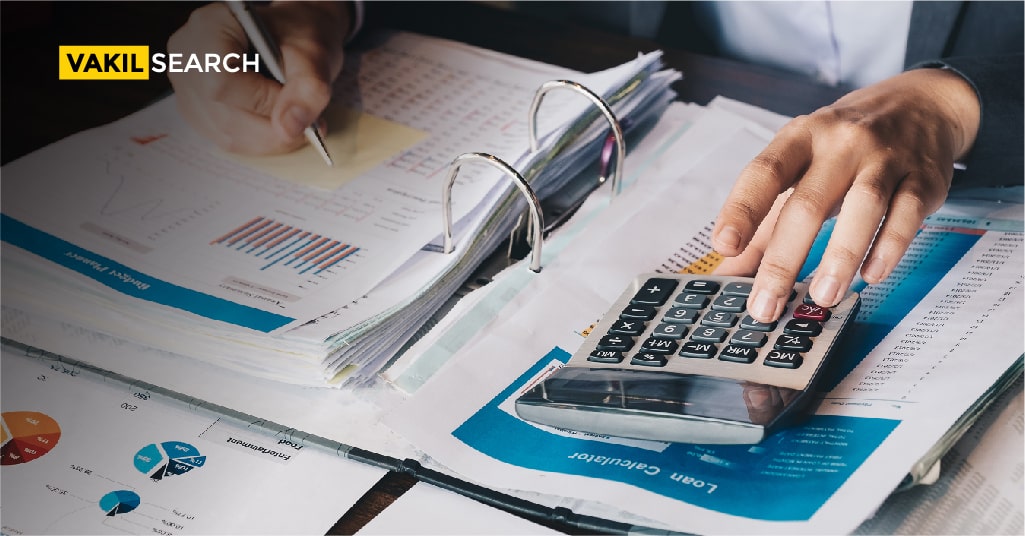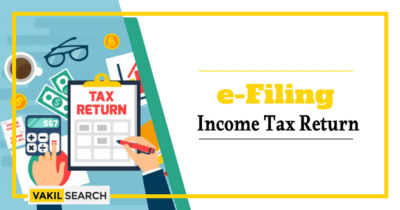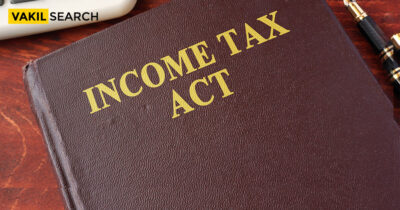In order to file an income tax return, the taxpayer must declare the magnitude of profits and gains from a business or profession, if the assessee has such income. In this article, we will discuss how to calculate the Profits and Gains of a Business or Profession.
Income Tax on Profits and Gains of Business or Profession: An Overview
One of the main factors in determining whether an income must be classified as profits and gains of business or profession under Section 28 is whether the assessee carried on a business at any time during the fiscal year. It is not, however, required that the business be carried out throughout the fiscal year or until the end of the fiscal year.
According to Section 28 of the Income Tax Act, 1961, the following fall under taxable income under the heading of Profits and Gains of Business or Profession:
- Foreign income tax earned by a trade, professional, or similar association from rendering services provided to its members.
| This is an exception to the usual rule that a surplus generated by a mutual association cannot be considered taxable income. |
Empower Your Business With Expert Precision – Our Top-Tier Bookkeeping Service for a Seamless Financial Journey!
- Profits from any business operated by the assessee at any point during the fiscal year
- The value of any advantage or perquisite deriving from the conduct of any business or profession, whether convertible into money or not.
- Any interest, salary, bonus, commission, or payment owed or received by a partner of a firm from the firm in which he is a partner
- Any sum received under a Keyman Insurance Policy, including bonus.
- Any sum, whether received or receivable, in cash or kind, on account of any capital asset being demolished, destroyed, discarded, or transferred, if the entire cost of such a capital asset has been deducted under Section 35AD.
- Any receivable due in case or kind under a contract for –
- Not engaging in any activity related to a company or profession
- Not exchanging any information, know-how, patents, copyrights, trademarks, licenses, franchises, or other commercial rights of a similar character that could be used in the production or processing of goods or services.
- Any remuneration or other payment that is owed to is received by, or relates to –
- The termination or modification of an agreement for the management of the entire or nearly the entire business of an Indian company or any other firm.
- Any person who holds an agency in India for a portion of the operations pertaining to the business of another person, whether at the time of the agency’s termination or modification or in conjunction therewith.
- Any individual for or connected with the administration of any property or company being vested in the government, or in any corporation owned by or managed by the government, under any legislation in force.
Use Vakilsearch`s Income tax calculator to decide your taxable earnings and document your Individual Tax Return (ITR) with ease.
- Export incentives inclusive of –
- Gains on sales of import licenses granted under Imports (Control) Order on account of exports.
- Cash assistance received or receivable against export.
- Duty drawbacks of customs and central excise duties
- Any profit on the transfer of the duty entitlement pass book scheme/ duty-free replenishment certificate
| Business profit = Total Revenue – Total Expenses |
Classification of Income Under Profits and Gains of Business or Profession
As per 80d income tax, the following conditions need to be met in order to determine whether an income is to be considered as profits and gains from a business or profession, they are as follows:
- A business or profession should exist.
- The assessee should have carried on the business or profession.
- During the fiscal year, the business or profession should be carried on for some time.
- The charge is based on the business or professional profits and gains for the fiscal year.
- The charge applies to any business or profession carried on by the assessee, whether in his or her own name or not.
Learn more about How to Calculate Capital Gains and Losses on Your Tax Return?
What Are Some Other Income That Are Classified as Profits and Gains of Business or Profession
However, there are some exceptions to the above-mentioned rules. Even if the assessee did not run a business the previous year, the following income must be classified as Profits and Gains of Business.
- Recovery of any loss, expense, or trading liability previously allowed as a deduction.
- In the case of electricity companies, balancing charges.
- The sale of a capital asset used for scientific research.
- Written off bad debts which have now been recovered
- Any amount debited from a Special Reserve.
- Receipt of discontinued business in the case of assessees who use a cash accounting system.
The Takeaway
In order to file an income tax return, the taxpayer must declare the number of profits and gains from a business or profession. However, computing the same requires expertise and professional know-how, this is why we recommend that you get in touch with the experts at Vakilsearch right away for assistance in itr filing process.
Read more,










